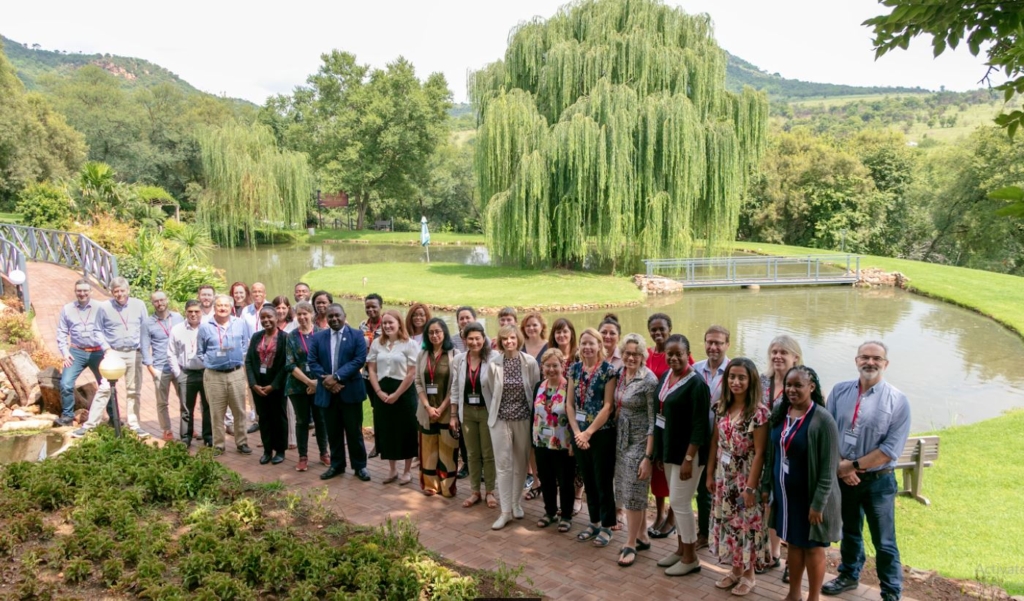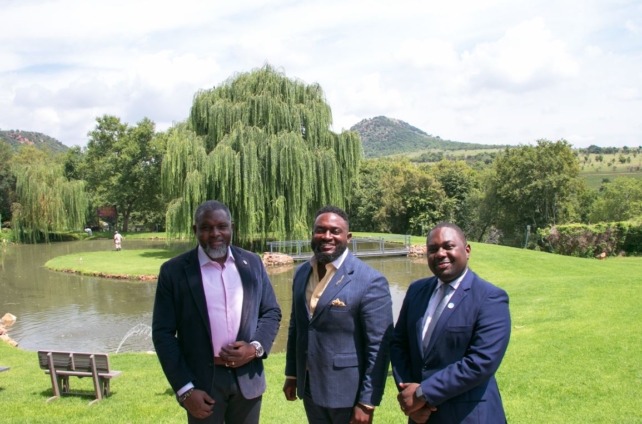Kumasi Centre for Collaborative in Research (KCCR), KNUST will be leading the Capacity Building Work Package for the Severe Neonatal Infection Adaptive Platform Trials in Africa (SNIP-AFRICA) Consortium.
Dr. John Amuasi, serving as the Principal Investigator for the study in Ghana and co-leading the Capacity Building Work Package for the SNIP-Africa consortium, expresses confidence in the capabilities of the Global Health and Infectious Diseases research group at KCCR, to lead this work package and support the translation of clinical research competence for an adaptive platform trial.
Dr Amuasi explained that pulling on the diverse expertise of the research group would contribute to developing clinical research competencies of the partners involved in the implementation of the SNIP-Africa project especially research teams in under-resourced research settings.
"We hope to build a robust network of researchers and sites capable of designing and conducting complex clinical trials in challenging environments.
“The Global Health and Infectious Disease Research Group brings a wide range of competencies and expertise in executing clinical research and forging collaborative partnerships spanning multiple countries within the Global South and in partnerships with the Global North," he detailed while speaking at the kick-off meeting for the SNIP Africa Study held in Johannesburg, South Africa, last month.
SNIP-AFRICA is a European & Developing Countries Clinical Trials Partnership (EDCTP3) funded clinical research network led by Penta - Child Health Research.
SNIP-AFRICA aims to reduce death among hospitalized neonates with severe infection in Africa.
To better treat neonatal sepsis when antibiotic resistance is on the rise, SNIP-AFRICA seeks to develop a clinical research network for the implementation of adaptive platform trials.
This adaptable platform structure enables a tailored study approach, empowering researchers and clinicians to adjust the trial dynamically in response to initial data analysis.
The trial will enroll 1,200 neonates across six neonatal intensive care units in Ghana, Kenya, South Africa, and Uganda.
The project incorporates a Capacity Building Work Package for all collaborators.

Dr. Anthony Afum - Adjei Awuah, co-lead for the Capacity Building Work Package for the SNIP-Africa consortium explained, “The main goal of this work package is to provide training and enhance the skills of clinicians, researchers, and collaborators involved in SNIP-AFRICA, with particular attention to individuals from regions with limited resources”.
“This entails enabling resource accessibility, encouraging the exchange of knowledge, ensuring understanding of adaptive platform trials, and nurturing the development of skills relevant to ancillary laboratory research.”
He continued, “There will be study specific trainings, graduate trainings, as well as bespoke in-person and virtual trainings.”
Dr Joe Bonney, an Emergency Medicine specialist and research fellow with GHID said, “We are excited to lead the capacity-building work package, especially for an adaptive platform trial. We have had the opportunity to organize various capacity-building activities on many of our past and ongoing projects”.
Dr Bonney also reasoned on the importance and usefulness of SNIP-Africa and other severe infection studies in children.
“Drug-resistant sepsis is an escalating and urgent challenge, especially among newborns in African countries. We hope results from SNIP-AFRICA and the just completed Pediatric Community-Acquired Pneumonia (PediCAP) trials will provide valuable insights for tackling antimicrobial resistance and improving child health globally,” he said.
Julia Bielicki, Senior Researcher at St George’s, University of London, AMR Research Lead at Penta, and Scientific Coordinator of SNIP-AFRICA conveyed her positive outlook regarding the commitment shown by all participants engaged in PediCAP: “It’s inspiring to see how they fully embraced the complex trial design; despite its novelty and challenges, they were all motivated by the goal of bringing better medicines for children. We're hopeful for similar positive engagement with SNIP-AFRICA, to address its comparable complexities.”
Latest Stories
-
Bawumia, thousands observe ‘Jummah’ prayers as new Walewale Central Mosque is commissioned
5 seconds -
Peasant farmers hail Bawumia as Walewale Watermelon Factory is commissioned
18 mins -
Joy FM Prayer Summit for Peace ends in electrifying worship and prayer
8 hours -
The Conscience of Leadership: A call to President Akufo-Addo on Ghana’s environmental devastation
8 hours -
Ghanaian youth unaware of their right to hold politicians accountable – Youth Bridge Foundation
9 hours -
Judge delays Trump sentencing for a third time
9 hours -
2024 WAFCON: Ghana drawn against defending champions South Africa in Group C
10 hours -
Photos from DW-JoyNews street debate on ‘galamsey’
11 hours -
Mimmy Yeboah: Blending heritage with global sophistication, confidence redefined through couture
11 hours -
100 Most Influential People Awards 2024: Brain Hill International School’s Director Mary Anane Awuku honoured
11 hours -
Akufo-Addo commissions 97-km Tema-Mpakadan railway line
11 hours -
Majority requests recall of Parliament
12 hours -
Kanzlsperger and Professor Quartey support WAFA with medical Donation
12 hours -
Gideon Boako donates 10 industrial sewing machines to Yamfo Technical Institute
12 hours -
‘Golden Boy’ Abdul Karim Razak honored at WAFU-B general assembly
12 hours

